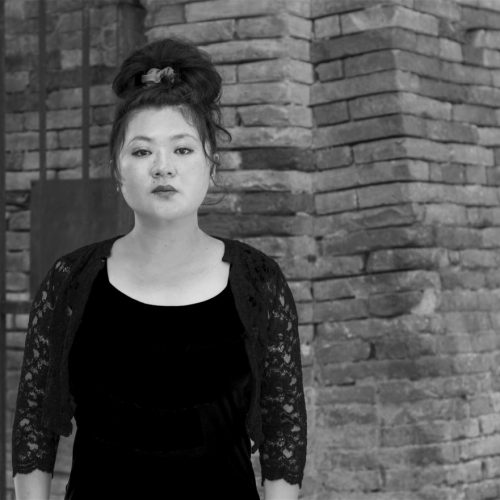
Du Yun
Professor
Composition
Pulitzer Prize-winner Du Yun, born and raised in Shanghai, China and currently based in New York City, is a composer, multi-instrumentalist, performance artist, activist, and curator for new music, who works at the intersection of orchestral, opera, chamber music, theatre, cabaret, musical theater, oral tradition, public performances, sound installation, electronics, visual arts, and noise.
Known for her “relentless originality and unflinching social conscience” (The New Yorker), Du Yun’s second opera, Angel’s Bone, won a Pulitzer Prize for music in 2017; in 2018 she was named a Guggenheim Fellow; and in 2019 she was nominated for a Grammy Award in Best Classical Composition. She has been hailed by the New York Times as a groundbreaking artist, was listed by the Washington Post as one of their Top 35 female composers. Known as chameleonic in her protean artistic outputs, Du Yun’s works are championed by some of today’s finest performing artists, ensembles, orchestras, museums, and organizations around the world. Her albums Angel’s Bone and Dinosaur Scar were named in the New Yorker’s list of Top 10 Albums of the Year in 2017 and 2018, respectively.
An avid performer, she has appeared in many assorted holes and halls, sites and museums. Her onstage persona has been described by the New York Times as “an indie pop diva with an avant-garde edge.” As a performance artist, engagements include the 2018 Lahore Biennial (Pakistan), the 2012 Guangzhou Art Triennial (Guangzhou Opera House, China), the National Academy Museum (USA), the inaugural Shanghai Project (China), and Contemporary Arts Center Córdoba (Spain). Her ongoing collaborations with Pakistani-American visual artist Shahzia Sikander have shown around the world, including the Popular Award at the Karachi Biennial, and are permanent collections at the Philadelphia Museum of Art and the Guggenheim Abu Dhabi.
Du Yun also leads her band Ok Miss, which exists as both rock band and chamber ensemble—from post-punk, metal to trip-hop, from electronica to improvisation—all while fostering all that exists in-between.
As a featured composer, selected commissions and venues: LA Philharmonic, New York Philharmonic, Seattle Symphony, Carnegie Hall, London Southbank Centre, Kennedy Center, Whitney Museum, Baltimore Symphony, Festival d’Avignon, Ultima Norway, Salle Playel Paris, Darmstadt, Musica Nova Helsinki, Lincoln Center, RedCat, Kimmel Center, Cabriollo Festival, Detroit Symphony, Shanghai Symphony, Shanghai Opera Orchestra, Beijing Music Festival, Hong Kong New Vision Festival, Mann Center for the Performing Arts (Philadelphia), Trinity Wall Street, Beth Morrison Projects, Muziekgebouw aan ‘t IJ, Philharmonie Luxembourg, Salzburg Aspekte Festival, the Bolshoi Orchestra (Bolshoi Theatre, Moscow), and BAM NextWave.
Du Yun’s theatre credits include original music for David Henry Hwang’s Kung Fu (original music); and Dim Sum Warriors (composer) by Yenyen Woo and Colin Goh, which in 2018 toured to 25 major cities in China.
An alumna of Shanghai Conservatory of Music, Oberlin College (BM), and Harvard University (MA, PhD), Du Yun is currently Professor of Composition at the Peabody Institute of the Johns Hopkins University and distinguished visiting professor at the Shanghai Conservatory of Music.
As a curator and activist for new music and art, she was a founding member of the International Contemporary Ensemble (ICE); served as the Artistic Director of MATA Festival (2014-2018); conceived the Pan Asia Sounding Festival (inaugurated at National Sawdust); and founded an ongoing multi-year FutureTradition Initiative in China where she works with folk musicians from around the world in order to champion more cross-regional collaborations. Future curatorial engagements include the LA Phil Green Umbrella Series (March 2020), Göteborg Art Sounds Festival (Sweden, Oct 2020), the centennial edition at the Donaueschingen Festival (Germany, Oct 2021), and a forthcoming article in OnCurating, edited by Rob Young. In 2018, Du Yun was named one of 38 Great Immigrants by the Carnegie Foundation.